Centre for Understanding Personality (CUSP)
Friday, 6 Sep 2024
09:00 – 12:00 GMT-4
Transference Focused Psychotherapy for Narcissistic Personality Disorder – Online seminar 2024
English – Online
Ken Levy
Tennyson Lee
Centre for Understanding Personality (CUSP)
1th of a 4 seminar package
Friday, 6 Sep 2024
09:00 – 12:00 GMT-4
English – Online
Ken Levy
Tennyson Lee

0
… days until the 8th ISTFP biennial conference. Yes, I am counting the days. Why? Because it has been six years since we all gathered together in mind AND body to further our knowledge of TFP and feel the warmth of our community. I have missed the stimulation of sharing ideas face to face with our elders, esteemed colleagues and esteemed colleagues who became friends along the road. And since the whole Public Relations and Communications Committee feels the same, we decided to make this edition about the upcoming ISTFP conference and the city where it will be held, New York. If you have not registered yet, you can do so by following this link.
I was there during the first conference in White Plains, NY in 2011 and have been coming every two years since. Every occurrence has left me with insights and experiences that have had a profound impact on me and my practice of TFP. In this article, I will try to tell the story of the ISTFP conference from the participant perspective so previous attendees can reminisces on past convention and new ones have all they need to enjoy it to the fullest. For a more formal history of the conference, I suggest reading this excellent article by Theophilus Kok that was published in the October 2022 members Newsletter.
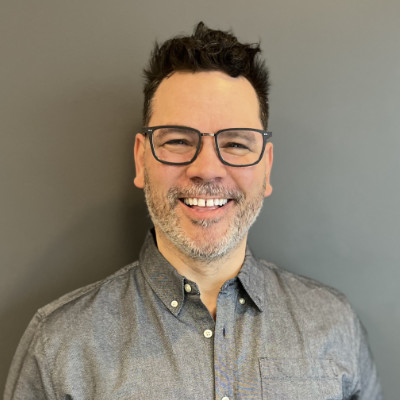
Mathieu Norton-Poulin is a psychologist in private practice in Gatineau, Québec. He graduated from Laval University in 1995 and started his training in transference focused psychotherapy in 2005. Member of the TFP-Québec group he as been practicing as a certified TFP therapist for the last 11 years. Since 2009 he organized several training events and has given lectures on TFP for medical doctors and college students. He maintains a blog where he write, in plain words, articles to explain TFP to the general public.
Down from Olympus… and on to New York

Dear Colleagues,
We all make mistakes. Mathieu Norton-Poulin, in his very personal article about attending ISTFP conferences over the years, points out a frequent error that people make: idealizing others. This is very understandable. We get comfort from the idea of someone who could have all the answers and solve all our problems. But, as we know, idealization is very dangerous. It is dangerous because it is not based in reality. In discussing Otto Kernberg’s cautioning people against the risk of idealizing him, Mathieu mentioned the risk of envy and aggression associated with idealization. We can go even further in our critique of idealization. For example, idealization of the leader is an implicit devaluing of the group. Otto Kernberg has always insisted that all members of the group have an important role in advancing our thinking and practice. This emphasis on the role of all members of the group was evident as the Personality Disorders Institute developed at the Weill Cornell Medical College. It is happening in a parallel way as we see the growth of the International Society for TFP. The whole is far stronger than any single member of the organization. Our organization has evolved into an incredibly creative and productive group.
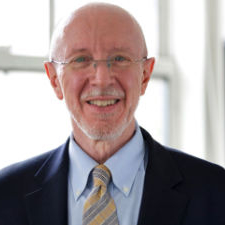
Frank E. Yeomans, MD, PhD, is a Clinical Professor of Psychiatry at the Joan and Sanford I. Weill Medical College and Graduate School of Medical Sciences of Cornell University. He is a Senior Consultant in and teaches internationally for the Personality Disorders Institute, and is in private practice in White Plains and New York City.

Hello, I’m Diana Téllez from Mexico, and years ago, New York captured my heart on my first visit. I have been fortunate enough to explore the city on various occasions: with family, a partner, children, for work, or on vacation. These varied experiences reflect my deep passion for the city, making it one of my favorite destinations in the world. As the saying goes, “New York is always a good idea,” so if you are considering coming to the congress, I assure you that choosing it as the venue was an excellent decision.
With the same enthusiasm, I want to share some suggestions for having fun, based on what I would have liked to know on my first visits to New York. I hope these recommendations help you fall in love with the city as much as I have.

Diana Téllez has been a Psychodynamic Psychotherapist since 2005. She obtained a Master’s in Psychotherapy for Children, Adolescents, and Adults in 2009 and a Doctorate in Psychoanalytic Psychotherapy from the Mexican Psychoanalytic Association in 2012.
She holds a PhD and Master’s in APM. Certified supervisor, teacher, and therapist in TFP, Circle of Security, and AAI. Psychologist with experience in personality disorders, specializing in MBT and EFT. Member of ISTFP and ISSPD.


My name is Marike Steeman, Chair of the recently established Art Committee.
In the 1990’s, a group of psychoanalytic psychotherapists in the Netherlands were educated in TFP by faculty from the Personality Disorders Institute at the Weill Cornell Medical College under the leadership of Otto Kernberg. Since then I have been a TFP therapist and, in addition, I became a TFP teacher / supervisor and board member of TFP NL (the Netherlands).
After completing a degree at the Academy of Fine Arts in my 50’s, I became interested in processes and developments in the works of visual artists. I did N=1 studies on Rothko, Mondrian, and others.
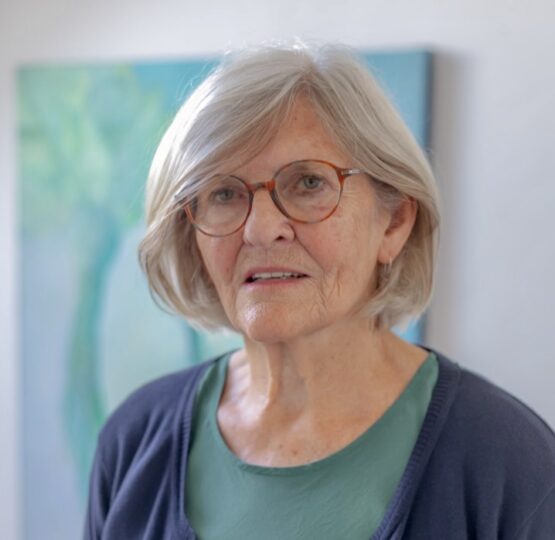
Marike Steeman is psychoanalytic psychotherapist, teacher & supervisor TFP, member NVPP, ISTFP, chair of TFP Nederland and director of the Psy Art Foundation.

Dear members, my name is Veronica Steiner and in this special edition of our members Newsletter, I have the pleasure of presenting Silvia Bernardi, a proud TFP therapist and genuine New Yorker. In this interview, you will meet a brilliant, curious woman who left her native Florence to become a psychiatrist, in New York.
Veronica: No doubt, all members will wonder why you change from beautiful Italy to dizzying New York.

Veronica Steiner Segal is a Chilean clinical psychologist who graduated in 1998. Since her beginnings she has been working with patients with Severe Personality Disorders in different health institutions in her country, and since 2018 she is a certified TFP therapist. In 2019 she obtained her accreditation as a teacher and supervisor. Since the same year she is coordinator of Grupo TFP Chile. She is the Executive Officer for the Board and she collaborates with the T&E Committee. She also teaches at the University of Valparaiso, in the Department of Psychiatry, where she also teaches in the Diploma of Severe Personality Disorders.
She collaborates in different courses looking for the diffusion of TFP. Together with Luis Valenciano and Pepa Gonzalez she directs an important training in TFP for Spanish speaking students, Instituto TFP Hispanoamerica.
TFP Group Ukraine
20 certified hours – first module
The First Module (consists three one-day workshops): September 14, 2024 October 19, 2024 November 16, 2024
Registration end date – September 11th, 2024
English – Online, Zoom
Otto Kernberg, MD
Instituto Chileno de Trastornos de Personalidad- ICHTP
100 certified hours
2025-2026
Spanish – Online
Dr. Otto Kernberg, Dr. Luis Valenciano, Ps. Mónica Eidlin, Dr. Miguel Angel Gonzalez, Dr. Benny Oksenberg, and Ps. Valeria Fernández.
Email your application by following the registration link.
TFP Group Mexico
16 certified hours
December 13, 2024
Spanish – Online
Diana Téllez Quiroz , Ph.D.
Ruth Alcala
Email your application by following the registration link
TFP Group Mexico
32 certified hours
August 17, 2024
Spanish – Online
Diana Téllez Quiroz , Ph.D.
Ruth Alcala Lozano , M.D.
Xóchitl Duque Alarcon , M.D.
Email your application by following the registration link
TFP Group Mexico
32 certified hours
August 17, 2024
Spanish – Online
Diana Téllez Quiroz , Ph.D.
Ruth Alcala Lozano , M.D.
Xóchitl Duque Alarcon , M.D.
Email your application by following the registration link
TFP Group Ukraine
15
2024 June 22-23 and July 5, 2024
Registration end date – June 20
English – Online
Julia Sowislo, Ph.D.
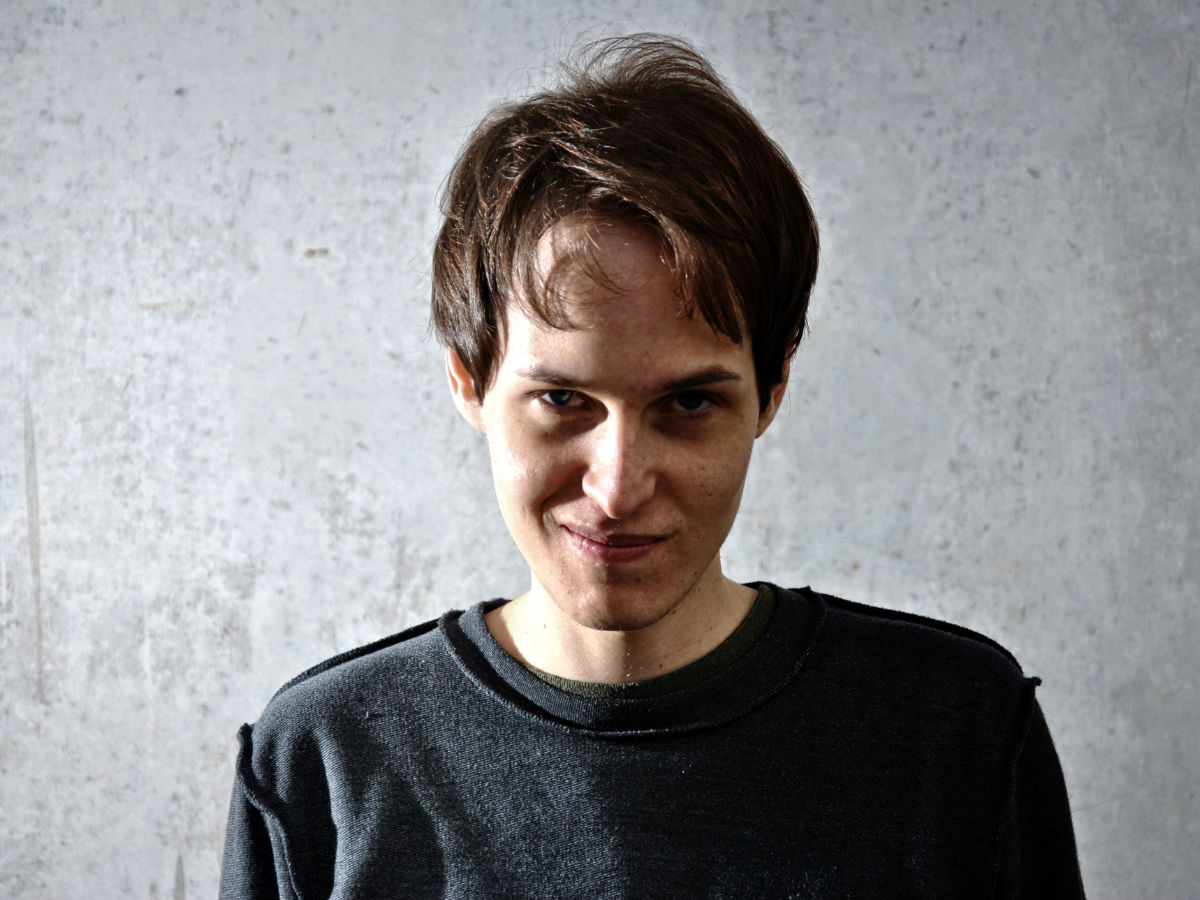
Psychopathy, the word itself raises fear and entails a feeling of darkness. In the coming text we will take time to explore the construct of psychopathy and better understand why it has such a profound effect on all of us. Will we find solace in the rarity of the pathology, its detectability, and treatability, or will we be haunted by the lurking presence of evil and its influence in the corruption of bonding in our societies?
Research on the question brought us to the works of Theophrastus (c. 371–287 BCE), a Greek philosopher who studied under Plato and Aristotle. During his life, he published many treatises on different subjects. His series of sketches of individuals from everyday Athenian life, “The Characters of Theophrastus (δεισιδαιμονίας Ισ᾽) ” could be considered one of the first “scientific” description of personality types. In his text, translated from ancient Greek by Charles E. Bennet and William A. Hammond, professors at Cornell University, we came across a description of “The Vicious Man”:
The Vicious Man
Viciousness is love of what is bad. The vicious man is one who associates with men convicted in public suits, and who assumes that, if he makes friends of these fellows, he will gain in knowledge of the world, and so will be more feared. Of upright men, he declares that no one is by nature upright, but that all men are alike, and he even reproaches the man who is honorable.
While Theophrastus does not talk of psychopathy proper, his portrait of “The Vicious Man” includes three characteristics that would be recognized by any of us has basics continuants of a psychopathic personality structure: love of evil, the exploitation of others for power, and a fundamental conviction of human amorality. But do we have enough evidence to say for sure that the vicious man is a psychopath?
The short answer is no. This is why we will give you an overview of the development of the construct and an insight into the roots of contemporary definition of psychopathy.

Veronica Steiner Segal is a Chilean clinical psychologist who graduated in 1998. Since her beginnings she has been working with patients with Severe Personality Disorders in different health institutions in her country, and since 2018 she is a certified TFP therapist. In 2019 she obtained her accreditation as a teacher and supervisor. Since the same year she is coordinator of Grupo TFP Chile. She is the Executive Officer for the Board and she collaborates with the T&E Committee. She also teaches at the University of Valparaiso, in the Department of Psychiatry, where she also teaches in the Diploma of Severe Personality Disorders.
She collaborates in different courses looking for the diffusion of TFP. Together with Luis Valenciano and Pepa Gonzalez she directs an important training in TFP for Spanish speaking students, Instituto TFP Hispanoamerica.

Mathieu Norton-Poulin is a psychologist in private practice in Gatineau, Québec. He graduated from Laval University in 1995 and started his training in transference focused psychotherapy in 2005. Member of the TFP-Québec group he as been practicing as a certified TFP therapist for the last 11 years. Since 2009 he organized several training events and has given lectures on TFP for medical doctors and college students. He maintains a blog where he write, in plain words, articles to explain TFP to the general public.

Dear Colleagues,
My thoughts are inspired by the rich and varied, but related, topics that our Public Relations Committee has put together in this newsletter. There is a sobering integration of many themes in the different articles. Silvia Bernardi writes of loss, embodied in the death of our colleague and friend Michael Stone. As Silvia points out, that loss is tempered to some degree by an appreciation of what Michael gave us, of the gift we had in him. Michael’s long association with us at the Personality Disorders Institute in New York is a reminder of something we may not reflect on enough: the degree to which our thinking and experience can be enriched by colleagues whose interests overlap with ours without fitting narrowly into the TFP world. Reflecting our years of association with Michael is a reminder that our community will continue to grow by both refining what we do and also by turning to close colleagues who may have somewhat differing perspectives to expand on what we do.

Frank E. Yeomans, MD, PhD, is a Clinical Professor of Psychiatry at the Joan and Sanford I. Weill Medical College and Graduate School of Medical Sciences of Cornell University. He is a Senior Consultant in and teaches internationally for the Personality Disorders Institute, and is in private practice in White Plains and New York City.

Dear members,
As you all know part of the mission of our society is to disseminate the model of Transference Focused Psychotherapy. This is achieved through many channels, including lectures, trainings and scientific articles. Today I suggest we take a look at where and how information about the model is communicated on the internet.
dataportal.com, a web platform dedicated on gathering data about the internet tells us that 60 % percent of people worldwide look online for information. That implies it is the same for information about treatments for personality disorders. That is why we asked the members of the Public Relations and Communications Committee to send me the first 10 results they obtain when conducting a Google search in their country for “transference focused psychotherapy” in English and in the country’s official language. In doing this, we hoped to monitor the information circulating about TFP on the internet and assess the ranking of TFP-Group websites.
Generally, information we found about transference focused psychotherapy mostly ranged from clear to adequate but, has you will see, we also came across some disturbing findings.

Mathieu Norton-Poulin is a psychologist in private practice in Gatineau, Québec. He graduated from Laval University in 1995 and started his training in transference focused psychotherapy in 2005. Member of the TFP-Québec group he as been practicing as a certified TFP therapist for the last 11 years. Since 2009 he organized several training events and has given lectures on TFP for medical doctors and college students. He maintains a blog where he write, in plain words, articles to explain TFP to the general public.

The loss of Dr. Michael Stone has left a void in the community of clinicians and therapists around the world, especially those who have grown professionally with his contributions to the study of Personality Disorders. His legacy strengthened the understanding, evaluation and treatment of Psychopathy and Antisocial Personality Disorder proper, one of the most challenging mental health conditions. Dr. Stone’s famous book “Anatomy of Evil” explores different causes and phenomenologies of psychopathy, creating a “scale of 22 degrees of evil severity”.
Inspired by Dr. Stone’s contributions, this month newsletter features a contribution by Lenzenweger et al. In this paper, the authors utilize Dr. Kernberg’s definition of malignant narcissism to construct a composite index scale and analyze data collected in a prior study, hypothesizing that malignant features would limit the patients’ prognosis. Malignant narcissism, a syndrome encompassing symptoms of:
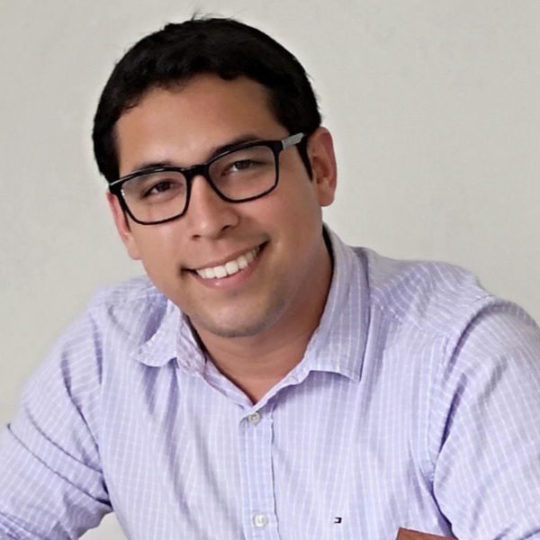
Glauco Valdivieso is a Peruvian psychiatrist, psychotherapist, and researcher based in Lima, Peru. He completed his medical degree at the Universidad Nacional Mayor de San Marcos and specialized in psychiatry at the Hospital Nacional Víctor Larco Herrera, becoming a board-certified psychiatrist in 2018.
He is a certified psychotherapist in Transference-Focused Psychotherapy (TFP), trained by the International Society of Transference-Focused Psychotherapy (ISTFP). In addition, he has completed formal training in Cognitive Psychotherapy, Dialectical Behavior Therapy (DBT), and Mentalization-Based Treatment (MBT).
Dr. Valdivieso is the co-founder and medical director of the Instituto Peruano para el Estudio y Abordaje Integral de la Personalidad (IPEP), where he also coordinates the TFP Peru division. He founded and currently leads the Chapter on Personality Disorders within the Peruvian Psychiatric Association (APP), and works at the Mental Health Unit of Hospital de Villa El Salvador in Lima.
He is also a co-founder and editorial board member of the Latin American Journal of Personality, a collaborative initiative with the Instituto Argentino para el Estudio de la Personalidad y sus Trastornos (IAEPD). Additionally, he serves on the editorial board of the Peruvian Journal of Psychiatry. Internationally, he is a Board Member of the International Society for the Study of Personality Disorders (ISSPD), where he chairs the Communications Committee and leads the Latin American Regional Group.
His main clinical and research interests include the treatment of personality and mood disorders, with a particular focus on advancing research in Transference-Focused Psychotherapy (TFP).
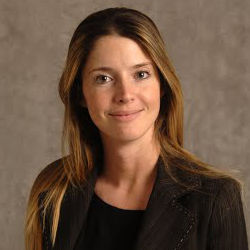
Silvia Bernardi, MD, is an Assistant Professor of Psychiatry at Columbia University. After graduating from medical school in Florence Italy in 2006, Silvia emigrated to the USA to work intensively in neuroscience research, studying the bases of the interaction between emotions and cognition. Silvia completed her residency in Psychiatry at Columbia and has since practiced privately in New York. She trained in Transference Focused Psychotherapy and continues to see patients for medication management and psychotherapy while conducting her research to unlock further knowledge to support the biological underpinnings of TFP and borderline personality disorder.

My name is Frank Denning, I am Chair of the Ethics Committee, and I wish to highlight the fundamental importance of ethics in the practice of Transference-Focused Therapy (TFP). In this newsletter, we will explore the role and relevance of our Ethics Committee, as well as the principles that guide therapists and professionals in this field.
First, though, I would like to acknowledge the help of my colleague Iván Arango, in putting together this introduction. Iván is a valued member of the Ethics Committee, along with Monica Carsky, Sergio Dazzi, Petra Holler, Alan Weiner and Teresa Ribalta. Had time allowed, and in keeping with the collaborative spirit of the committee, I would have consulted all the members about the content of this introduction. Hopefully, the thoughts of Iván and myself reflect the thinking of the whole committee.
Iván and I are grateful to Diana Téllez from the ISTFP Public Relations and Communication Committee, for her help in putting this introduction together.
PhD Candidate in Philosophy, University of Manchester. Certified TFP Teacher and Supervisor. Member of ISTFP Training and Education Committee. Manchester-based Psychoanalytic Psychotherapist, working in the U.K. public health service.
TFP Group Ukraine
16,5 certified hours
April 26, 27, 28 2024
English – Online
Registration end date April 24, 2024
Frank Yeomans, M.D., Ph.D.